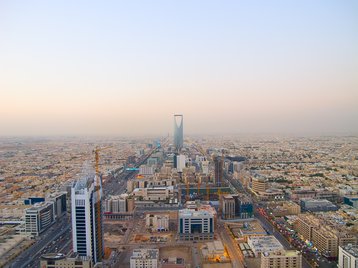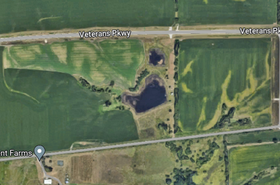Amazon Web Services (AWS) plans to launch a cloud region in Saudi Arabia.
The company said that it would invest more than $5.3 billion over the longer term, and that the region will consist of three Availability Zones at launch - that is, three physically separated data centers.
“The partnership with AWS and their announcement of an AWS Region, backed by a $5.3bn investment, ignites a new era of technological excellence and innovation for the Kingdom,” Abdullah Alswaha, Saudi Arabian Minister of Communications and Information Technology, said.
“This cloud Region demonstrates a firm commitment to research, innovation, and empowering entrepreneurs to achieve prosperity for our region and the world.”
Local businesses already using AWS include Abdul Latif Jameel, Almarai, Almosafer, Al Naghi Group, Jahez, Mobily, Red Sea Global, Saudi Telecom Group, and Seera Holding Group.
DataVolt, a Saudi-based data center developer, has also committed to investing more than $5 billion in developing around 300MW of data center capacity in the country.
The launch would come ahead of Saudi Vision 2030, an effort to reduce Saudi dependence on oil with a priority placed on smart infrastructure and digital transformation. Since the effort launched in 2016, oil has still remained the country's largest source of revenue.
International businesses temporarily paused announcements and investments after the state-sanctioned murder of US citizen and Washington Post journalist Jamal Khashoggi in 2018. Google Cloud's CEO was among those who backed out of a conference to promote the project that year, delaying its own data center buildout.
On 22 December 2020, Google quietly announced that it would open a cloud region in the country - in partnership with the world's largest oil company, Aramco. The region was launched last November. Dozens of human rights groups called on Google to cancel the project due to Saudi Arabia's well-documented record of illegally surveilling its own citizens, and torture of dissidents.
Microsoft is planning its own Saudi cloud region and came up against similar calls to cancel the development.
Oracle and Huawei have each launched Saudi cloud regions in recent years.
Crown Prince Mohammed bin Salman has spearheaded a campaign of persecution against clerics, public figures, family members, human rights activists, women's rights figures, and academics.
In 2019, the private security chief of Amazon founder Jeff Bezos claimed that "our investigators and several experts concluded with high confidence that the Saudis had access to Bezos’ phone, and gained private information."
Gavin de Becker alleged that the Saudi government shared naked pictures and details of Bezos' affair with the National Enquirer in an attempt to blackmail the billionaire (the National Enquirer denies this).
A later Guardian investigation claimed that the Saudi government gained access to Bezos' phone via WhatsApp messages from bin Salman.







